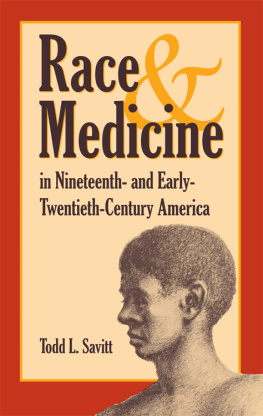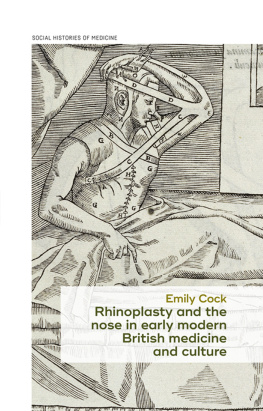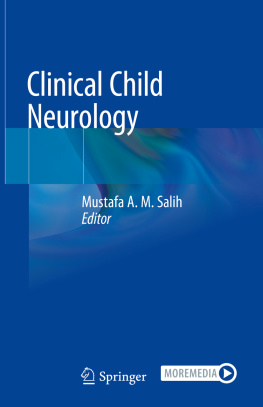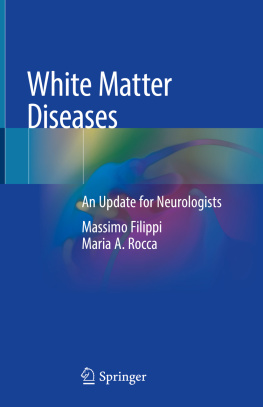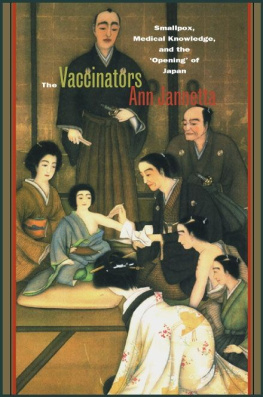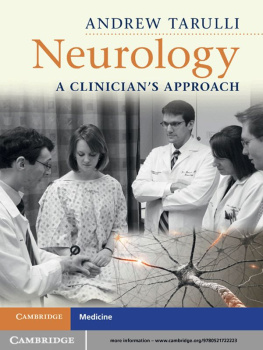The neurologists
A history of a medical specialty in modern Britain, c. 17892000
Stephen T. Casper
Manchester University Press
Manchester and New York
distributed in the United States exclusively by Palgrave Macmillan
Copyright Stephen T. Casper 2014
The right of Stephen T. Casper to be identified as the author of this work has been asserted by him in accordance with the Copyright, Designs and Patents Act 1988.
Published by Manchester University Press
Oxford Road, Manchester M13 9NR, UK
and Room 400, 175 Fifth Avenue, New York, NY 10010, USA
www.manchesteruniversitypress.co.uk
Distributed in the United States exclusively by
Palgrave Macmillan, 175 Fifth Avenue, New York,
NY 10010, USA
Distributed in Canada exclusively by
UBC Press, University of British Columbia, 2029 West Mall,
Vancouver, BC, Canada V6T 1Z2
British Library Cataloguing-in-Publication Data
A catalogue record for this book is available from the British Library
Library of Congress Cataloging-in-Publication Data applied for
ISBN 978 0 7190 9192 6 hardback
First published 2014
The publisher has no responsibility for the persistence or accuracy of URLs for any external or third-party internet websites referred to in this book, and does not guarantee that any content on such websites is, or will remain, accurate or appropriate.
Typeset by JCS Publishing Services Ltd, www.jcs-publishing.co.uk
For the Association of British Neurologists
Contents
Tables and figures
Tables
Figures
Foreword
Medicine has a long history as both a practical enterprise and a scientific discipline. By the middle of the nineteenth century, the field of medicine was divided broadly, but not exclusively, into internal medicine and surgery. During the last half of that century, specialisation emerged within internal medicine as physicians recognised new diseases and developed tools for increasingly accurate diagnosis, the necessary prelude to assignment of therapy. In this book, Stephen T. Casper, an American trained at the Wellcome Centre for the History of Medicine at University College London, turns our attention to the origins and early history of the medical discipline of neurology in the United Kingdom from the mid-nineteenth to the mid-twentieth century. This period is particularly interesting and important in the history of modern neurology because it was then that British neurology began to lead the rest of the world. The forces that drove this ascent to excellence are evident. Industrialisation, already well underway in the United Kingdom, forced rural manpower to move to urban areas for work. Of all urban areas in the United Kingdom, London grew the most. A concentration of population resulted not only in an increased incidence of contagious diseases such as tuberculosis but also in an increased concentration of diseases with a relatively low prevalence, a characteristic of most neurological diseases other than epilepsy (the incidence of cerebrovascular disease, currently the most common neurological disease in industrialised countries, was relatively low, reflecting the short life expectancy of the period). A general recognition of the need for physicians who had specialised interest and experience in neurological diseases had not developed but was stimulated, as often happens, from an unexpected source.
In 1859, the National Hospital for Diseases of the Nervous System, the first hospital dedicated to neurologic diseases, was established. This occurred not out of an evident medical need but from the The rest, as the saying goes, is history. It is, of course, the history Professor Casper relates for us.
An unforeseen factor that impelled the development of neurology was its complexity. Neurology is now known to deal with more than 700 inherited diseases and a further host of vascular, trauma, degeneration, immune abnormalities, metabolic disorders, neoplasia, and others as the fundamental aetiology. Unlike other medical specialists, neurologists receive only modest assistance from the laboratory, physiology or imaging. Their ability to diagnose and treat neurological illness is much dependent on history and neurological examination.
To conclude these comments, I can envisage the potential reader perusing the shelf of new arrivals in a bookshop. Interested in neurology and history, she picks up this book. The dust cover is attractive but, like all sceptics, she proceeds further to peruse the contents list to determine if the book is at all up her alley. This assured, she goes on to the Foreword to assess its promise for enlightenment and pleasure. If this is you, my reader, let me give you my wholehearted endorsement of this book. It contains the story of a critical period in the evolution of modern neurology during a crucial time and in the country that led the advance. It is well written, forceful yet nuanced, engaging and stimulating, and above all, informative.
Robert Y Moore, MD, PhD, MD (Hon)
Love Family Professor Emeritus of Neurology
University of Pittsburgh
Neurology, like history, is a fascinating subject. And like history, nothing about neurology is simple. Throughout all of my research, one observation in particular has always struck me as noteworthy about neurology. While many physicians and scientists have engaged with the history of their fields, I think there are few academic disciplines or clinical specialties where that is so especially the case as it is for neurology. Why this is the case forms one of the major preoccupations of this study. The tentative answer to be found in the subsequent pages is that the professional identity of past neurologists has traditionally been grounded in a set of spirited, integrative dispositions and appreciations. The implications of such an outlook has been that historically the identity of a neurologist ultimately derived of a mixture of the actions of those scientists, physicians, and philosophers who first took as their object the mind, brain, and nervous system.
Yet the story does not really end there, because even as neurologists began retrospectively reconstructing past identities, another cultural formation began transforming the nature of scientific and medical work in Europe, North America, and beyond. It was not wholly inevitable that divisions of labour began to transform the factories and plantations of the modern world. It was still less inevitable that the middle classes should have acquired similarly divided characteristics; nevertheless, the professions, academic disciplines, and clinical specialties emerged in a world that saw in classification and social segmentation the virtue of progress.
Few ideas capture so clearly that worlds optimism than the idiom of specialisation. As a phenomenon, specialisation, especially as it appeared in the writing of Herbert Spencer, came to appear an atavism of our Neolithic past and a natural law of the growth of knowledge and technological progress. Yet the idea of specialisation first came into this world to describe linguistic phenomenon; it moved from there readily into the evolutionary discourses of the pre- and then post-Darwinian worlds, and from there it aided and abetted a new organic conception of society that would in time become the favourite metaphorical trope of functionalist sociology. In this sense,


